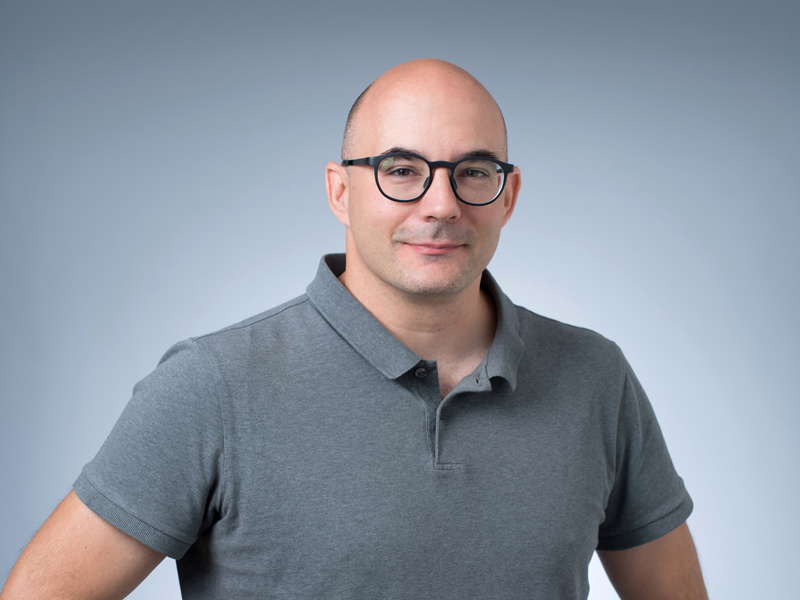Biography
Fabio Martinon received his PhD in 2003 from the University of Lausanne for his work on the characterization of the Inflammasome in the laboratory of Jürg Tschopp. After a short post-doctoral fellowship in Jürg Tschopp’s laboratory, he moved in 2006 to the laboratory of Laurie Glimcher at the Harvard School of Public Health, where he investigated the link between inflammatory programs and the endoplasmic reticulum stress response. In August 2010 he joined the Department of Immunobiology (formerly Biochemistry) as Assistant Professor and Associate Professor in 2017. His current research focuses on the characterization of signaling pathways leading to inflammation.
Research interests
Cellular stress is a hallmark of severe pathogenic insults that leads to the activation of adaptation programs aimed at restoring tissue homeostasis. This state of reversible malfunction is defined by the notion of stress. Tissue stress and malfunction promotes low-grade inflammation that helps the tissue to cope with damage and restore tissue function. This low-grade inflammation also termed para-inflammation illustrates how stress and possibly stress response pathways can regulate immunity. A variety of diseases are characterized by inflammation and cellular homeostasis deregulation including viral infections, cancer and autoinflammatory syndromes. However, the mechanisms and the role of these stress responses and their impact on the inflammatory pathways are poorly understood. We developed a research program aimed at identifying stress-signaling pathways that regulate inflammation. Our research is aimed at characterizing the stress-inflammation connection in autoinflammatory diseases and cancer.
Bojan Busijic PhD student
Aude de Gassart Postdoctoral fellow
Jérôme Lugrin Postdoctoral fellow
Benoît Allaz Master student
Ines Lanz Master students
Yvan Jamilloux Visiting Ph.D student
Antonia Di Micco Ph.D student
Gianluca Frera Ph.D student
Rémy Tallant Ph.D student
Emma Proïcs Erasmus student
Marianne Ethenoz Technician
Einar Castillo Technician
SUR students
Abigail Reinhart SUR Programme 2018 Ubiversity of Rochester, Rochester, New York, USA
Evgeniia Prokhorova SUR Programme 2016 Lomonosov Moscow State University
Zaiyue Shu Student SUR Programme 2013 Shanghai Jiao Tong University
Malak Benslimane Student SUR Programme 2012 Univ. of Wisconsin at Madison
Premaster students:
Quentin Pasquer Premaster student 2017 UNIL
Rébecca Panes Premaster student 2013 UNIL
Patricia Renck Nunes Premaster student 2012 UNIL
Nicoletta Corti Premaster student 2012 UNIL
Basiglio Giangreco Premaster student 2011 UNIL
The Department of Immunobiology is part of the Faculty of Biology and Medicine and offers an ideal environment for a successful postdoctoral career. The research campus is located in Epalinges (north of Lausanne) and is part of the Center of Immunity and Infection (CIIL). The department of Immunobiology offers an exciting and enthusiastic work environment with excellent infrastructure, including core facilities and a solid national and international collaboration network. The successful candidate will benefit from daily interactions with highly accomplished scientists.
No open position at this moment

